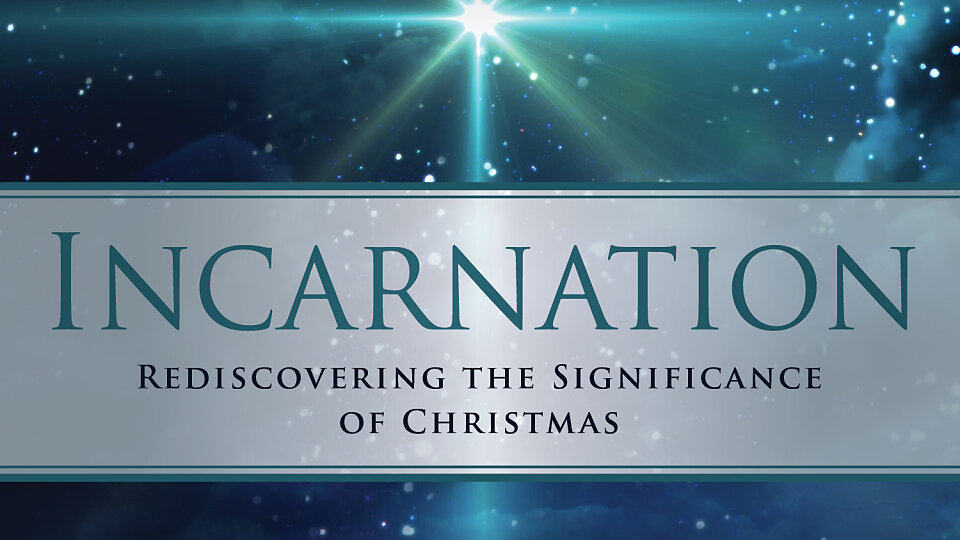Introducing Incarnation: Rediscovering the Significance of Christmas

While I was in quarantine with the rest of the world this past spring, I spent much of my time thinking about the future—Advent, to be specific. Like many of you, I immersed myself in a project, which resulted in a new book called Incarnation.
During the next few weeks, I’ll be posting excerpts from this book here on the blog. You’ll get a preview just in time for you to get your own copy to use in the weeks prior to Christmas.
Incarnation comes from a Latin word that means something like “embodiment” or “become flesh.” The doctrine of the Incarnation represents one of the foundational, and some might say scandalous, claims of the Christian faith: namely, that the God who created all that is, who sustains the universe by his power, came to us in Jesus. He did not simply inspire Jesus, or speak through Jesus as he might inspire or speak through people today. No, Incarnation claims that God actually became flesh in Jesus.
The church has always struggled with explaining the how of the Incarnation, ultimately relying on theological terms like hypostatic union and homoousios to affirm what our language and understanding find inadequate to explain. I’m content recognizing that the how of the Incarnation will remain a mystery.
I hope this book will instead explore the why and to what end questions of the Incarnation: Why would God come to us in Jesus? What was the purpose of the Incarnation? How are we meant to respond to the Incarnation, to God’s coming to us in Jesus, today? In answering these questions, I hope to fulfill the promise of the subtitle of this book—we will rediscover the significance of Christmas, as Christmas is a celebration of the Incarnation.
In each chapter of the book, we’ll consider one or more of the names or titles used by the Gospel writers as they introduce the story of Jesus. In Chapter One, we’ll focus on the royal titles, Messiah or Christ, and what it means to call Jesus our King. In Chapter Two, we’ll turn to the title Savior and in what sense we need saving. In Chapter Three, we’ll turn to the name Emmanuel—God with Us—and how in Jesus, God was, and still is, with us. In Chapter Four, we’ll turn to the prologue of John’s Gospel where we find Jesus called the Word and referred to as light, a passage often read on Christmas Eve. And finally, in the Epilogue, we’ll look at what the earliest Christians meant when they proclaimed that “Jesus is Lord.”
This year, the first Sunday of Advent is November 29. The book is intended to be read over five weeks, one chapter a week for each of the four Sundays corresponding to the four Sundays of Advent, with the epilogue read either on Christmas or Epiphany. For those reading the book with others, there are small group videos and a leader guide available. There are also materials available for children and youth. You can find all of the available resources on the Incarnation book page.
My prayer as I wrote this book was that God might speak to me, deepening my own faith and understanding, and then that God might speak through me to you. May your faith and understanding grow so that together we might stand in awe of the Incarnation, and in turn incarnate the love of God that came to us in Jesus Christ.